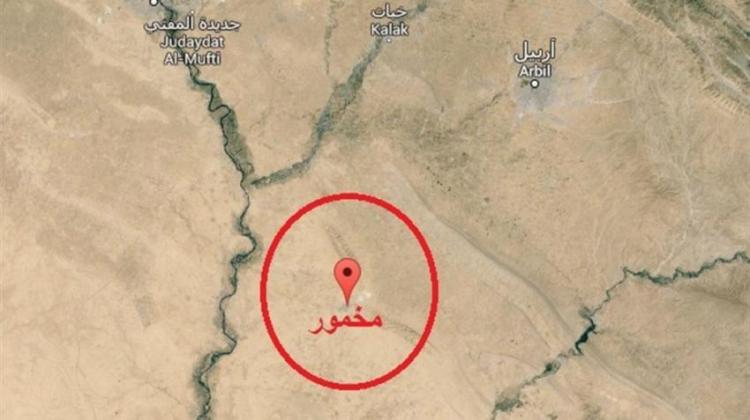The Islamic State Imposes Zakat on Residents of Makhmour Village in Iraq
The Islamic State Imposes Zakat on Residents of Makhmour Village in Iraq
“The Islamic State” returned to public appearances in the Makhmour area and demanded donations from the farmers.
Around 300 elements of the “Islamic State” organization are settled in Mount Qara Dagh (14 km) east of Makhmour district in Ninewa Governorate, according to information obtained by North Press.
Ghazi Faisal Sian, a resident of the village of Ali Rash, the closest point for the organization’s barracks in the Qara Dagh Mountains told the North Press that the organization had been in the surrounding mountains for two years.
He added that they had informed the official authorities of the Kurdistan Regional Government, the Americans and the representatives of the States that these elements were present in their area, but received no response or any assistance.
“They descend from the mountain at night to neighboring villages and threaten the people, forcing them to pay zakat and charity only to them,” he said.
Ghazi assured that they attacked their village three times and looted their properties, and the villagers were confronting them “without the assistance of the Peshmerga forces and the Iraqi army.”

For their part, Makhmour’s farmers complain to the Kurdistan Regional Parliament, demanding protection after receiving threats of burning their farms, unless they agree to pay money.
Concerning the nationality of these elements, Ghazi said; they are distributed among “Afghans, Arabs of the region and other nationalities, and they wear the uniform of the Islamic state organization elements and have a black flag”. The presence of these elements and their free roaming in the area is due to the empty security distance between the Peshmerga forces and the Iraqi army.
The organization launched an attack on Makhmour in August 2014 and it was confronted by joint forces of the People’s Defense Forces of the Kurdistan Workers Party (PKK) and Peshmerga forces, preventing the organization from controlling the area.
In the autumn of 2017, Iraqi forces launched an offensive against the disputed areas, taking control of large tracts of them after the withdrawal of the Peshmerga forces.
Makhmour district remained split between the Iraqi army and Peshmerga, but the demarcation line is very wide. In an indication to the seriousness of the situation, Peshmerga forces commander in Makhmour front, Serwan Barzani admitted, implicitly, Peshmerga’s inability to control the situation.
He stressed that the Peshmerga forces need support from the Iraqi army to control the growth of “the Islamic State” organization after signs of its return appeared.
“The solution is the presence of the Iraqi forces, which should return to the region and not just carrying out cleansing operations and then leaving,” Barzani said in a press statement last week.
Omid Tawfik-Sulaymaniyah-NPA

